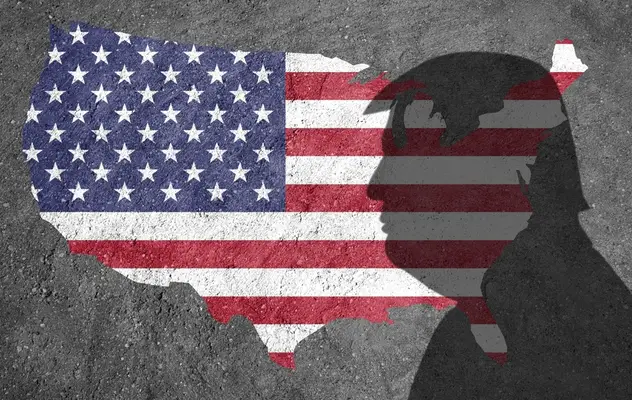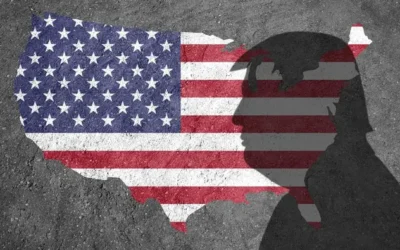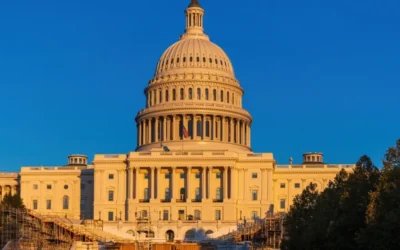With the upcoming presidential election, market analysts, homeowners, and investors are questioning what a Trump victory could mean for the U.S. housing market.
Trump’s potential return to office could have ripple effects across the economy, influencing mortgage rates, housing supply, construction costs, and more.
This article will explore the key factors at play and what these changes could mean for buyers, sellers, and investors in real estate.
Current State of the U.S. Housing Market
The housing market today provides a unique context for assessing the potential impacts of a Trump presidency. Rising mortgage rates, low housing supply, and persistent inflation have already put pressure on homebuyers. Below is a snapshot of the housing market as of 2026:
- Average Home Price: $416,100
- Mortgage Rate: Average 30-year fixed rate is currently around 7.2%
- Housing Supply: Tight inventory is driving up demand and prices, especially in metro areas
| Market Factor | Current Value (2026) |
|---|---|
| Median Home Price | $416,100 |
| Average 30-Year Mortgage Rate | 7.2% |
| National Housing Supply | Limited |
Economic and Fiscal Policies and Their Impact
If Trump wins, his economic policies will likely focus on tax cuts, deregulation, and potential spending increases. These factors could stimulate economic growth but might also drive up the federal deficit, which could have indirect effects on the housing market.
- Tax Cuts and Deregulation
Tax cuts are generally favorable for individual income and corporate growth, which can increase consumer spending, potentially boosting demand for homes. However, this increase in demand could further strain the already tight housing supply, leading to higher home prices.“Tax cuts can lead to higher disposable incomes, but without adequate housing supply, this could drive home prices even higher,” says Anna Roberts, Senior Economist at RealtyWise.
- Higher Inflation and Interest Rates
If tax cuts and spending lead to higher inflation, the Federal Reserve may be pressured to keep interest rates elevated or even increase them. For prospective homebuyers, this could mean higher mortgage rates, making homeownership less affordable.“With inflation on the rise, the Fed might have no choice but to hold or raise interest rates, impacting affordability,” says Jason Willis, Mortgage Specialist at SecureLend.
- Government Spending and the Federal Deficit
Trump’s policies often involve significant spending initiatives, which can increase the national deficit. This might lead to higher borrowing costs, affecting not only mortgage rates but also homebuilder costs, which could discourage new construction projects.
How Trade Policies Could Impact Home Prices
Trump’s history of protectionist trade policies, including tariffs, could reemerge, especially on goods from countries like China. Here’s how tariffs could affect housing:
- Higher Material Costs: Tariffs on imports such as lumber, steel, and aluminum could increase construction costs, pushing up the prices of new homes.
- Reduced Housing Supply: As construction costs rise, fewer builders may initiate new projects, further limiting the housing supply and driving up demand in competitive markets.
| Impact of Tariffs on Housing | Potential Outcome |
|---|---|
| Increased Material Costs | Higher home prices |
| Fewer New Builds | Lower housing supply |
“If tariffs return, expect to see fewer homes built, which will push prices up further,” says Laura Tran, Housing Market Analyst at HomeRise Analytics.
Mortgage Rates: The Trump Effect
The Fed’s response to inflation will likely be the biggest determinant of mortgage rates under a Trump administration. Here’s how:
- Interest Rate Increases
Higher inflation often prompts the Federal Reserve to increase interest rates, leading to higher mortgage rates. As rates increase, monthly mortgage payments for new buyers would rise, making homes less affordable. - Mortgage Rate Volatility
Trump’s influence on fiscal policy could create uncertainty, leading to fluctuating mortgage rates. In the short term, rates might spike as the market adjusts to new economic policies, making it harder for homebuyers to budget effectively.
“We’re expecting more volatility in mortgage rates if inflation goes unchecked, which could disrupt the market for new buyers,” notes Chris Young, Head of Mortgage Research at Equity Solutions.
The Real Estate Investment Landscape
Investors are often quick to adapt to new political environments. Under Trump, favorable tax cuts for capital gains and investment may benefit real estate investors. However, this could have the following effects:
- Increased Real Estate Investment: Investors may capitalize on favorable tax treatment, driving demand in certain metro areas and raising prices.
- Property Taxes and Local Budgets: Federal tax cuts could pressure local governments to raise property taxes to cover funding gaps, potentially affecting housing affordability.
“Investors could see this as an opportunity, but property taxes might increase, especially in high-demand areas,” says Jamie Russell, Real Estate Investment Advisor at WealthPath Realty.
The Role of Investor Sentiment and Speculation
A Trump victory could impact investor sentiment, creating both short-term volatility and long-term shifts:
- Short-Term Volatility: Markets might react to expected policy changes, leading to swings in home prices.
- Foreign Investment: Protectionist policies may reduce foreign interest in U.S. real estate, potentially easing competition in certain high-demand areas.
Potential Scenarios for the Housing Market
| Scenario | Potential Impact |
|---|---|
| High Inflation, High Rates | Decreased affordability |
| Looser Lending Standards | Increased buying but riskier loans |
| High Tariffs on Construction | Higher costs, fewer homes |
| Favorable Investment Tax Cuts | Increased real estate investment |
Frequently Asked Questions (FAQs)
How would a Trump win impact mortgage rates?
A Trump victory could lead to increased inflation, prompting the Fed to keep mortgage rates high to stabilize the economy.
Will tariffs under Trump affect home prices?
Yes, if tariffs are implemented on construction materials, it could increase the cost of new homes, pushing up overall housing prices.
How might Trump’s policies impact the housing supply?
Higher construction costs could discourage builders, worsening the existing housing supply shortage.
What about property taxes?
Federal tax cuts might lead to higher property taxes locally, as local governments seek to balance their budgets.
Could real estate investment increase under Trump?
Yes, favorable tax policies might drive increased investment, particularly in popular metropolitan areas.
Is it a good time to buy a home if Trump wins?
This depends on individual circumstances, but high inflation and mortgage rates may make affordability more challenging.
How will foreign investment be impacted?
Protectionist policies could decrease foreign investments, easing some competition but potentially affecting high-value markets.
Will Trump’s policies change lending standards?
It’s possible; looser lending standards may increase access but introduce riskier lending practices.
Conclusion: What Does the Future Hold for the Housing Market?
A Trump win could introduce a range of changes in the housing market. Higher mortgage rates, restricted housing supply, and economic volatility may create both challenges and opportunities.
Homebuyers, sellers, and investors should keep an eye on policy changes and consider their long-term financial goals in light of these potential shifts.






